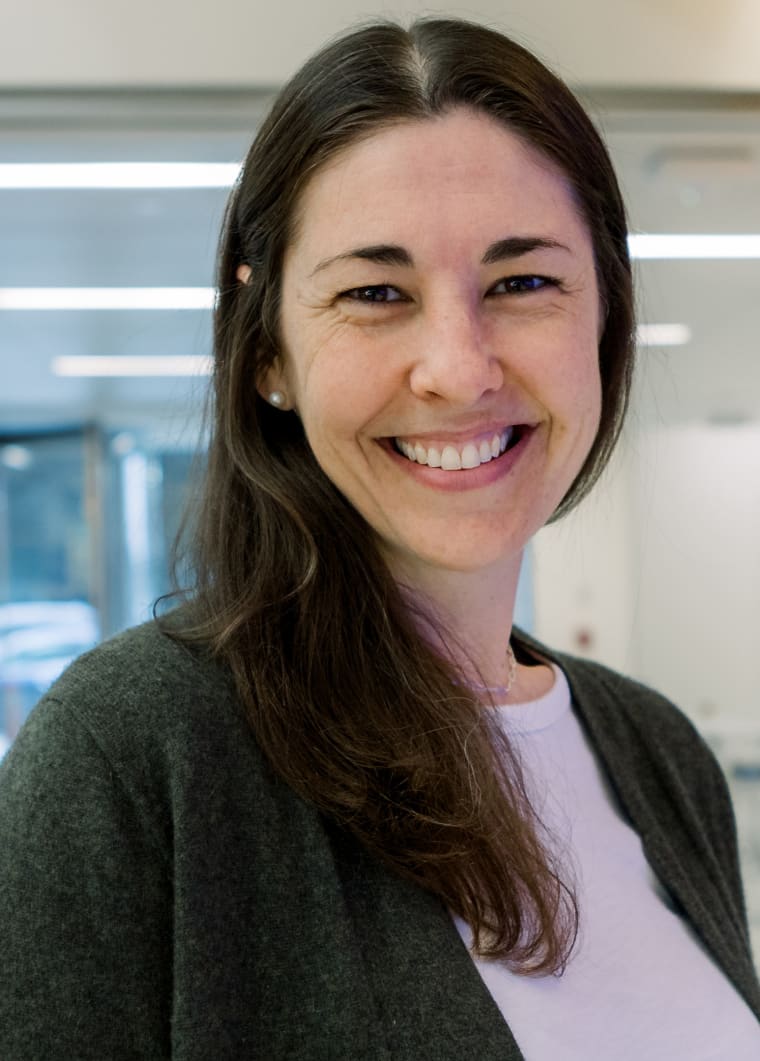In the Institute’s November blog, I wrote to you coming off of the momentum of an inspiring tour of convenings. Since that time, I have dedicated myself to incorporating our findings into strategic directives for the Institute. As I planned, I kept coming back to the gaps described by our community of leaders that are preventing genomic medicine, let alone genetic medicine, from reaching all communities. The gaps leave many of us feeling like the whole system is inequitable, inefficient, and broken. In this strategic work, lifting these voices up is essential as they will define the critical next steps.

When I look at the delivery of precision medicine today, I see a complex problem. On one hand, we have the rapid development of new tests, targeted therapies, devices and technologies that have the power to make a positive impact for patients and save lives. On the other hand, the healthcare infrastructure is not supporting the equitable distribution and routine utilization of these advancements. This implementation problem is apparent when we look at research on the utilization of genetic testing. There is a large body of evidence demonstrating disparities in genetic counseling and testing referrals for Black and Hispanic populations for the indication of breast cancer. This is concerning on so many levels. Especially given that this is one of the most widely accepted types of genetic testing today.
The exacerbation of existing gaps may only widen with advancements in gene and cell therapy. Within days of the FDA approvals of gene therapies for sickle cell disease, The New York Times and others reported on these issues. They shed light on where we as a society need to do more to ensure patients not only have access to these treatments, but the ability to utilize them.
Access means nothing if the infrastructure to support utilization is lacking.
Disparities in access and utilization for underserved communities will continue without intervention. Although it will take a multitude of initiatives and strategies to effectively deliver precision medicine to all, I want to share two of the Institute’s key initiatives for the coming months that begin to address this complex problem.
First, we aim to gather together those who have a vested interest in making precision health for all a reality. As a non-commercial entity, the Institute for Genomics Education, Workforce & Leadership has a unique perspective. We are able to connect with people from across the sector, amass their challenges and incorporate the learnings into collective action without allegiance to one solution or product over another. We will strive to identify the end-to-end challenges in the delivery of precision medicine collaboratively, by assembling a community of stakeholders who can create holistic solutions. To solve this complex problem, it will take diverse perspectives, backgrounds, and experiences. Not only will a diversity of talent and voices be necessary to make substantive changes in precision health, but also willing partnerships and investments from organizations across the genomics ecosystem. In the coming months, the Institute is convening leaders across the pharma, biotech, and health care sectors to dig deeper and uncover more root causes of this implementation problem. Be sure to join our contact list for the latest information on these convenings.
Secondly, while we work to connect stakeholders aligned in this mission, we will utilize our strengths to address facets of this complex problem today. At Sarah Lawrence College our major strength in genetics is none other than education! This year the Institute is bringing this wealth of experience in genetics education to pilot programs. We are collaborating with institutions across the US who want to more effectively deliver precision medicine.
By bringing our deep pedagogical expertise and emphasis on humanism, we will develop effective solutions unique to the needs of each institution.
The first phase of the pilot process is to do the work to understand the critical challenges and desired outcomes of each of our partner institutions. Getting to the heart of their needs includes asking:
- How effective are they today in delivering genomic and precision medicine?
- What motivates them to dedicate time and resources towards precision health?
- What behaviors do they want to change within the institution?
- How do they measure success and what are the key outcomes they desire?

After the needs assessment, we will bring in Claire Davis, Curriculum Director for the Institute. Claire is an expert curriculum designer steeped in experiences of educating numerous graduate level professionals and genetic counselors. Claire's expertise in designing learning programs not only comes from her work as the former/interim director for the Joan H. Marks Graduate Program in Human Genetics at Sarah Lawrence College, but also as the co-director of the recently announced master’s program in Genome Health Analysis co-created with NYU Langone’s Vilcek Institute of Graduate Biomedical Sciences. Claire has a unique approach to humanism-based curriculum design which allows us to build pilots aligned to the needs of our partners with aims to drive meaningful outcomes and improve health equity.
Continuing medical education exists in many different forms. However, to truly drive engagement and positive outcomes, an education program must incorporate a variety of learning modalities. It must also capture the right data and garner support from both institutional leadership and the providers within. Each of our pilots include options for asynchronous and synchronous learning, facilitator-led workshops and workgroups, and simulated patient experiences. Once the preferred learning modalities are determined with provider champions and system leadership, we create a data collection protocol designed to measure the key desired outcomes. A scheduled results review and validation plan are also incorporated to ensure the accuracy of these measurements and the ability to enact incremental changes, if needed. Additionally, support for our pilot partners does not automatically end at the report out of results. If the parties agree that the desired outcomes are achieved, we can partner to implement a more permanent program or other pilots in areas of need.
Through these pilots, we are testing and validating our belief that educating the existing healthcare workforce in precision medicine is one part of the solution. Are you ready to raise your hand? We are currently seeking additional partners for a tailored educational pilot experience. If you are ready to address precision health in your organization, don't miss this opportunity and reach out to the Institute.
We know that to effectively implement precision medicine for all, education may be just one solution, but not the only one. As we begin this work over the next few months, we are sure to unearth new infrastructure challenges. We aim to discover a host of solutions to meet these challenges; that may include new workforces, technology solutions and integrative approaches. Most importantly, we are creating a space for collective discussion and engagement for us to work together, across sectors, to bring precision medicine advances to everyone.
-Kelle Steenblock, Director of the Institute for Genomics Education, Workforce & Leadership